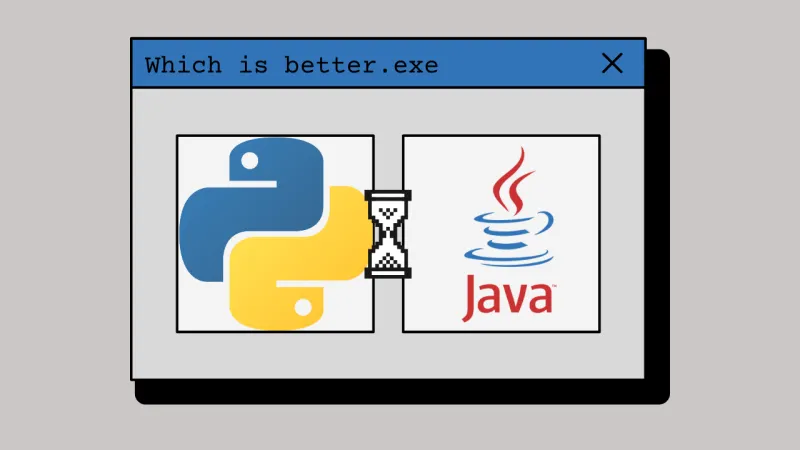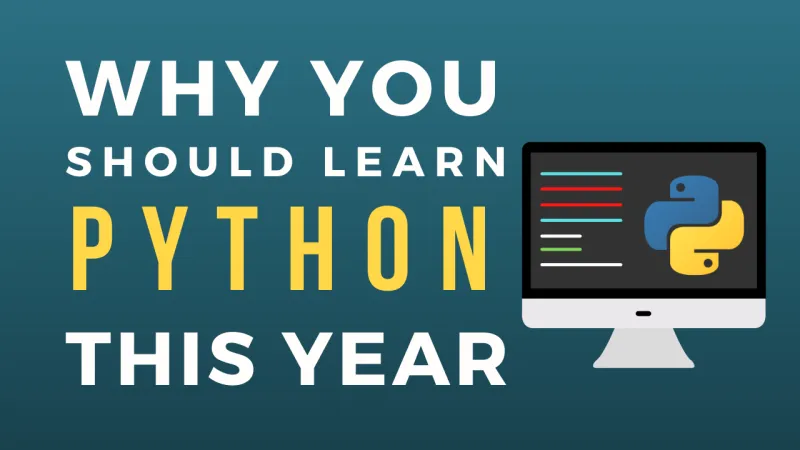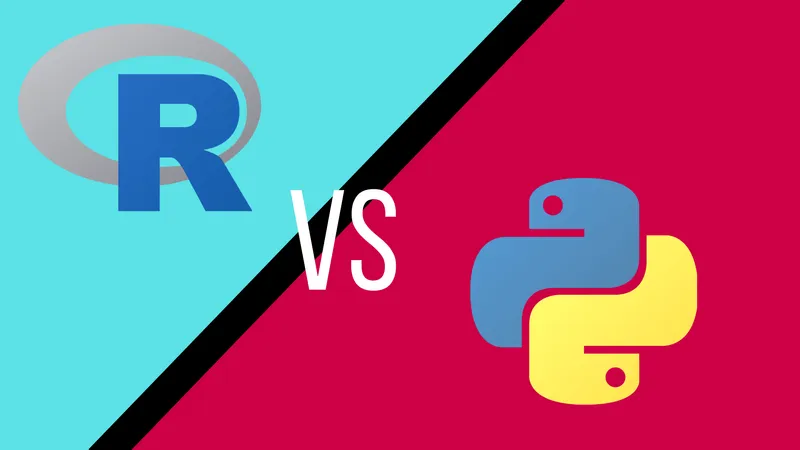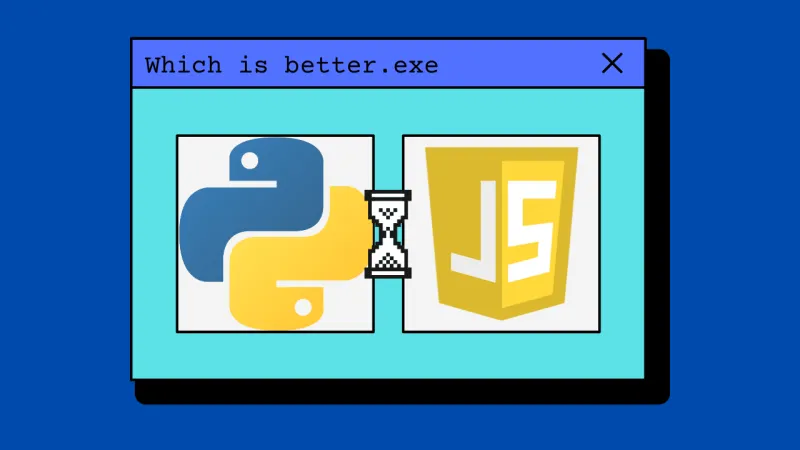Comparing Python and Java is a bit like comparing boats and cars. They both get you from point A to B and are fun to show off, but that’s where the similarities end. And the same with Python and Java, they’re both programming languages and known for powerful server-side coding, but after that, they become completely different tools.
Python is a multiparadigm, general-purpose programming language created by Netherland-based Guido van Rossum at the Centrum Wiskunde & Informatica (CWI). First released in 1991, making it older than Java, it’s since adopted the term “batteries included” from the programming community due to its tricked-out standard library.
Java, on the other hand, is a class-based, object-oriented language designed by James Gosling at Sun Microsystems, which has since been taken over by Oracle. It first appeared in 1995 sporting the famous JVM and “write once, run anywhere” motto, and continues to battle Python as the most popular programming language.
The debate for which language is best runs deep in the tech community, but now it’s time to put this argument to rest. Join me as I break down these languages by difficulty, performance, salary, application, and popularity!
Python vs Java Difficulty: Beginner or Expert? 🔗
Most programming languages benefit experienced programmers by offering new features, modern tooling, or better performance. However, a language can be useful in its own right just by being easy to use for beginners.
Unless you live under a rock (which is a perfectly reasonable state of existence), you’ve probably heard praise of Python’s industry-changing learning curve.
Python’s exceptional readability and dynamically typed structure make it feel like you’re reading a plain set of English instructions because it’s so close to natural human language. And, instead of closed braces, it uses indentations to form code blocks, furthering its intuitive environment.
On top of being effortless to learn, Python’s also incredibly flexible and run since it’s interpreted, not compiled. Plus, as a general-purpose language, you can create almost anything with Python, which is a useful skill to have as a junior developer.
Oppositely, Java does not boast the same stunning résumé for beginners.
Java has a high entry-point, so you need to feel confident and comfortable navigating some of the complexities of Java before becoming a developer. Its learning curve is also much steeper than Python’s, and it lacks Python’s flexibility when it comes to typing and compiling.
However, it’s a different story when it comes to experienced programmers.
As we saw in the intro, Java is a universal language, and adding Java to your toolbelt acts as the perfect cherry on top when it comes to your versatility as a developer. And, if your previous experience is with C languages, then you’ll pick it up in no time as they’re from the same family.
Java’s also key in a lot of traditional work environments, like finance, and flourishes with desktop GUI applications and enterprise applications. So, if you work or are looking to work in a large company, then Java’s an excellent skill to have.
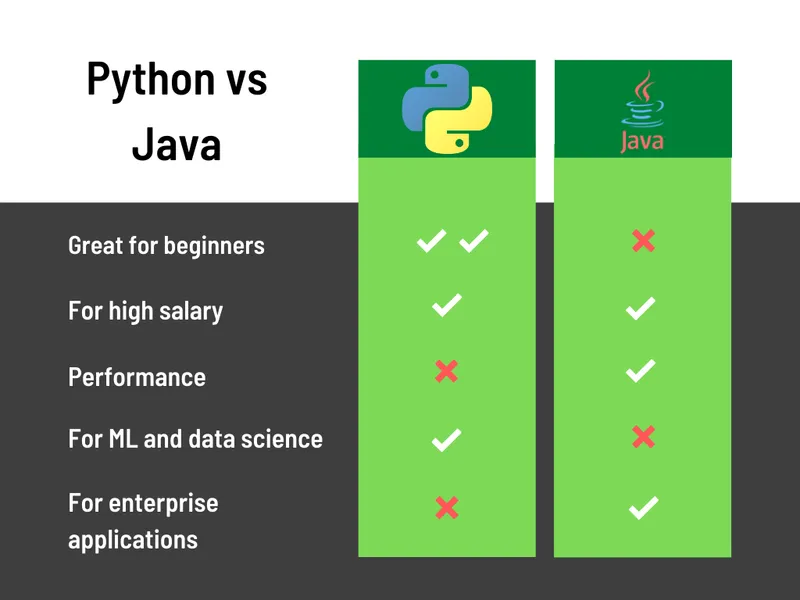
Alternatively, Python’s a great tool to have because it’s easy to learn for everyone. You can use it for a variety of applications and it’s becoming increasingly popular in newer industries such as gaming, AI, and graphic design. Its brevity, fluidity, and experimental support truly make it an exciting language to learn.
I think what’s also unique about Python is it’s an amazing hobby language. Sure, we all want to make money, and you can do that with Python, but you can also work on clever and imaginative side projects. And because Python’s so easy to learn, you don’t have to be a programmer to use Python recreationally.
Overall, both languages offer huge passionate communities that can’t be ignored and offer real value in terms of career growth. However, Python hands down takes the cake for beginners, and you can see how easy it is for yourself on our course here!
But for experienced programmers, both languages are useful, with Python better for those looking to work in experimental fields and wanting to create their own projects, and Java best for those looking to maintain security in traditional institutions and work with a universal solution.
Python vs Java Performance 🔗
When it comes to performance, it’s a bit of a double-edged sword.
According to the benchmark Python vs Java test, Java is undeniably faster. Java is statically typed, which means faster compilation, fewer errors, and better aim at targeted platforms. Moreover, Java has the Just-In-Time (JIT) compiler in tandem with the JVM, further improving speed.
Java’s stable workflow also comes in handy with performance because the strict boundaries around writing and error handling make it predictable and strong, and able to manage performance even with heavy applications.
Java’s downside is it takes longer to develop applications, but of course, that’s where Python shines.
Python’s clean syntax makes developing applications quick and easy, however, it’s interpreted and dynamically typed, and that can hold up production since it’s checked at run-time rather than compile time. Dynamically typed languages like Python are notorious for being harder to debug, especially as the size of an application grows.
Python has worked to combat slow execution times by introducing PyPy, Jython, and Cython, which allows you to speed up the performance, but it’s still slower than Java. Jython works by compiling Python into Java bytecode, and similarly, Cython works by compiling Python into C/C++.
In the end, when it comes to Python vs Java for speed, Java can’t be beaten, but with Python’s faster development, you’ll have to choose which factor is more important.
Java vs Python Salary 🔗
According to the 2020 Stack Overflow survey, it’s a very close call when it comes to Python vs Java salary.
In the U.S., Python developers make on average $120k a year, and Java developers make the same. The only advantage here is globally, Python has a slight increase of $59k a year, while Java developers only make $50k a year.
So, if you’re looking to work abroad or live outside the U.S., that could be a determining factor to consider.
There’s much more deviation in rankings though when it comes to preference.
When it came to which languages are the most wanted by developers, Python scored way above Java, and all the others, doubling the percentage of second-place runner-up, JavaScript. Python is also listed in the top three for most loved languages by developers, while Java sat in 17th place.
Now, I’m not saying to choose a language based on a popularity contest…but I am saying if the pay is the same, it doesn’t hurt to listen to your fellow peers.
Java vs Python for Game Development 🔗
It’s no secret that C languages reign supreme in game development, but that doesn’t mean other languages don’t have merit in the field.
Python may not be as popular as C++ in the industry, but it’s made a nice name for itself with games like Battlefield 2, EVE Online, and Pirates of the Caribbean on its portfolio. It also has a nice selection of frameworks that support game development, like Pygame, PyKyra, Pyglet – and much more.
Python’s particularly skilled at image processing, graphics development, and the rapid prototyping of games. So even if you don’t build with it, you can use it to easily progress through the prototyping stage.
This all circles back to my comment on being a great language not only for professionals but also hobbyists. Python is fun and easy to code with and offers a ton of resources on hand for you to build any game you can dream up.
Java doesn’t hold much weight in video games, but it does well on mobile games and web-based games using Flash, however, it’s not iOS compatible and only works with Android mobile games. It’ll only add value to your skillset if you’re solely focusing on the Android mobile gaming market.
Machine Learning in Java vs Python 🔗
Artificial Intelligence (AI) and Machine Learning (ML) are a near necessity nowadays as processing, analyzing, and using data has become integral to every business. Therefore, it should come as no surprise that Python dominates this field.
Python’s simple syntax makes experimenting straightforward, and you have the option of using functional or procedural programming to do so. It’s cross-platform and can even integrate with other languages, so you can streamline any project you’re working on.
Python also has a history of developing organization-specific machine learning libraries and already sports a vast collection including Scikit Learn, TensorFlow, and Chatterbox.
On top of being the most commonly used language for ML, it offers a low-entry point and a massive community for anyone wanting to join, so not only do you get to experiment sooner, but you get amazing support at the same time.
Java doesn’t possess the same popularity with ML, and that’s because it wasn’t chosen by the AI community.
Java technically has the bandwidth to support the data, but it wasn’t adopted because it’s too complex to experiment nicely with and it’s not flexible. Java also doesn’t have nearly the amount of library groundwork Python does, but that may be because there wasn’t a demand to develop them.
In the end, Python naturally meshed with this field in a way Java couldn’t compete with.
Big Data in Python vs Java 🔗
Following the same trend above, as we’re still operating in the AI space, Python steals the limelight when it comes to Big Data and data science.
Python tools possess powerful data visualization and analysis capabilities, and their stability and predictability work well with the developmental cycle. Paired with its already extensive and targeted library, Python is also compatible with the Hadoop software which specializes in data processing. And again, its simple design makes it feel effortless to interact with such immense data loads.
Java, like Python, also has the ability to work with Big Data, but lacks the demand from the professional and academic world. It has little library support, and its verbosity makes it more difficult for researchers to work with.
Java vs Python for Enterprise Applications 🔗
Just like Python chose its specialized path, Java chose enterprise applications. Enterprise applications are all about developing and managing large-scale programs for organization-wide use, and what’s better for that than a universal programming language.
Java’s scalability can match and manage any workload seamlessly, and its verbose coding style allows it to create safer systems that are often larger than things created with Python.
Java’s JVM easily transports applications across platforms, and its asynchronous programming lets it create fast user-friendly applications. And the most impressive thing about all of this is that Java can handle applications of this magnitude without sacrificing performance.
A couple of things against Python when creating enterprise applications is that Python updates frequently. For example, Python 3 is practically a whole new language compared to Python 2, and updates of this massive size can hurt large companies. Additionally, dynamically typed languages don’t support static analysis very well, so executing these large migrations can be dangerous.
Java has been in the game for years and has established its dominance in the community and field, making it harder for Python to get in on the action.
Java vs Python: The Final Verdict 🔗
The hardest part about choosing which language is best is that both Python and Java are so different. Therefore, the question isn’t about which language is best, it’s about which language is best for you and your project.
Java is your best bet if you’re interested in working in a traditional industry, like finance and mega-corporations, prefer crafting large applications, and want to learn one of the most universally used programming languages.
However, if you’re leaning more towards experimental coding and ML, creative environments, and want to learn a fast-growing language, then look no further than Python.
Regardless of what you choose, you’ll land on your feet with a language supported by a tremendous community and a plethora of career opportunities.
Take action and learn to code:
If you’re looking to learn Python, we built our Learn Python course to take anyone from a beginner to having all the Python skills to pursue your dream Python programming job, such as in data science.
